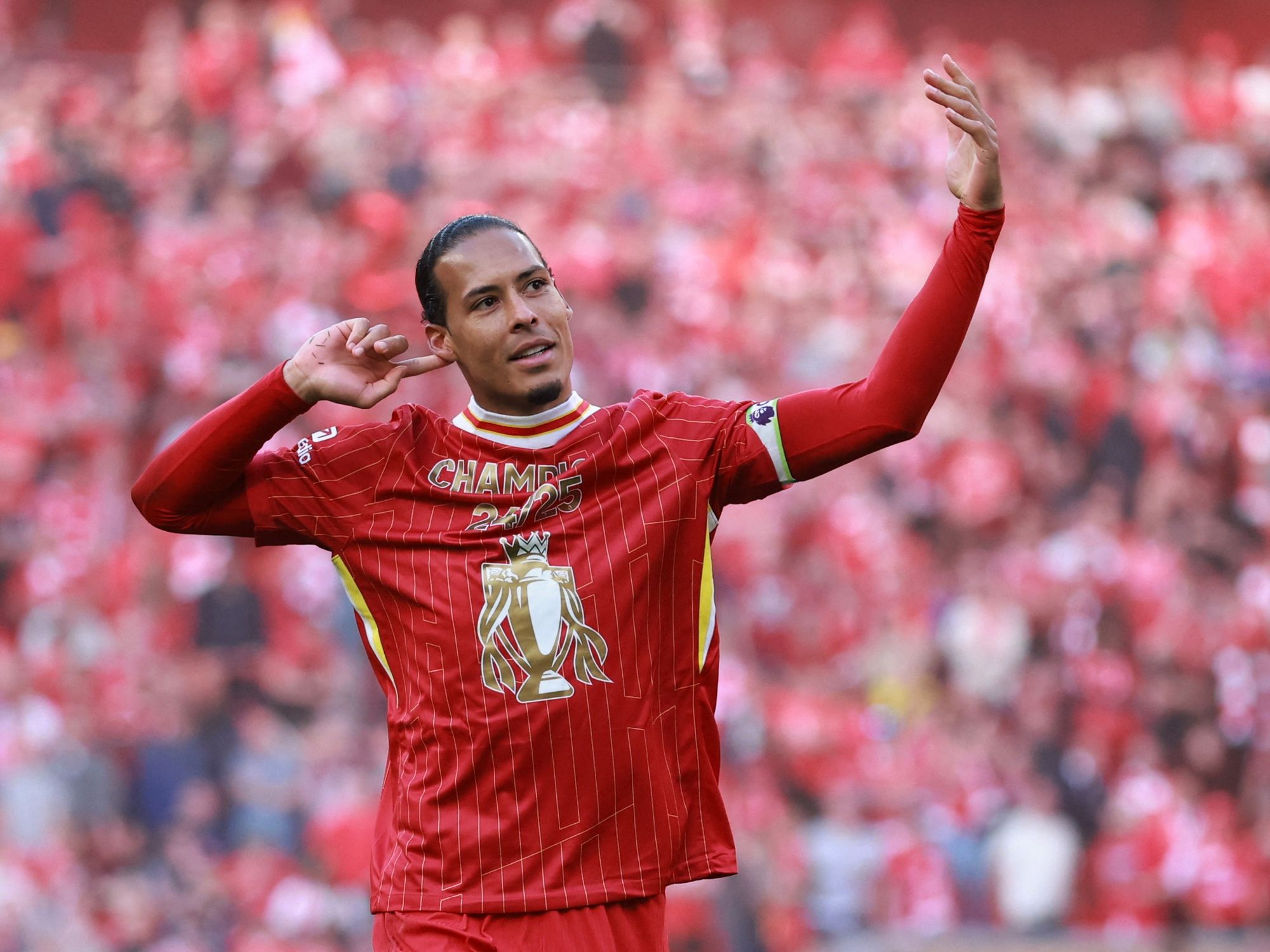Sir Keir Starmer with insets of Marine Le Pen, Ursula von der Leyen and Giorgia Meloni
PA/REUTERS
GB News explores how the latest EU Parliament Elections could impact Sir Keir Starmer if the Labour leader wins the keys to No10 next month
Europe's populism sparks HUGE problem for Remainer Starmer's bid to rebuild Brussels relations
Don't Miss
Most Read
Trending on GB News
Sir Keir Starmer might have undergone a Damascene-style conversion on Brexit but the Brussels bloc’s latest transformation significantly weakens his hand.
The Labour leader, who served as Jeremy Corbyn’s second-referendum-supporting Shadow Brexit Secretary, is adamant he can forge closer ties with the 27 member states if he seals victory on July 4.
Despite opinion polls pointing to an emphatic Labour landslide, results across the EU over the weekend hindered Starmer’s ambitions and only emboldened his far from natural allies on the populist right.
The right triumphed in France, Italy and Austria, with “Dutch Donald Trump” Geert Wilders and hardline German Eurosceptics from the AFD also taking second place.
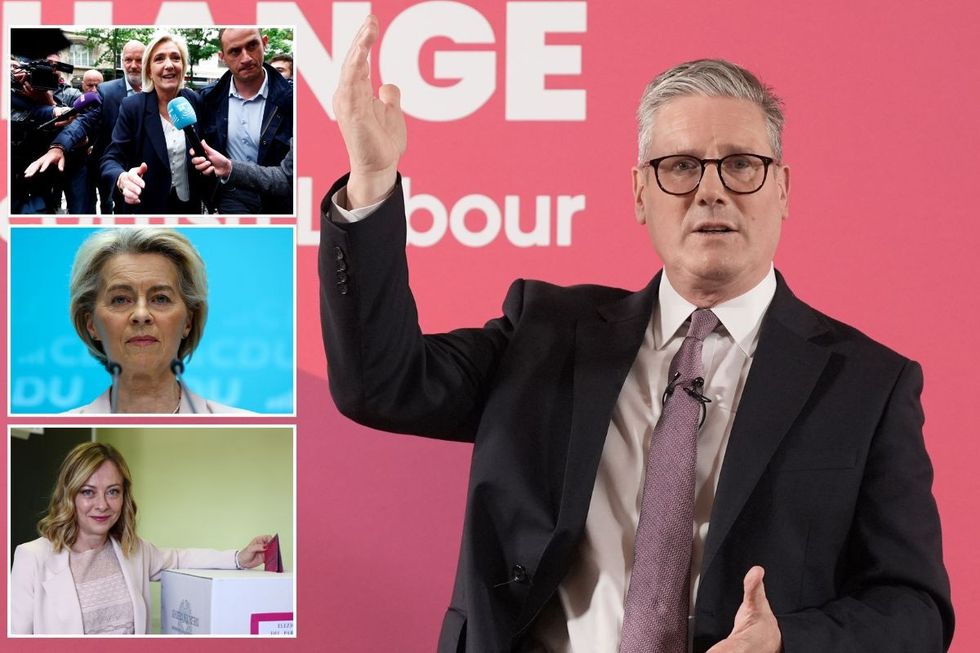
Sir Keir Starmer with insets of Marine Le Pen, Ursula von der Leyen and Giorgia Meloni
PA/REUTERS
Starmer’s allies invested large amounts of time and resources schmoozing French President Emmanuel Macron.
However, the 46-year-old could soon face legislative gridlock if he snap election gamble backfires by returning National Rally as the largest party in Paris.
Macron dared his opponents to take him on yet again just hours after National Rally soared to victory with 30 MEPs as the centrist contingent collapsed to just 13.
Efforts to court German Chancellor Olaf Scholz have also proved far from fruitful, with the centre-left suffering a trouncing.
The SDP was reduced to just 14 MEPs, with the AFD entering second and the centre-right opening up an enormous lead.
The German Chancellor and French President, perhaps the big boys of the Brussels bloc post-Brexit, have quite quickly found their influence diminished and will need to thwart political insurgencies at home.
Nowhere is this more important than when it comes to dealing with immigration.
Migration is considered the driving force behind voters across the EU pivoting to the populist right, with concern about illegal migration and Islamism increasingly concerning the continent’s constituents.
MORE MEMBERSHIP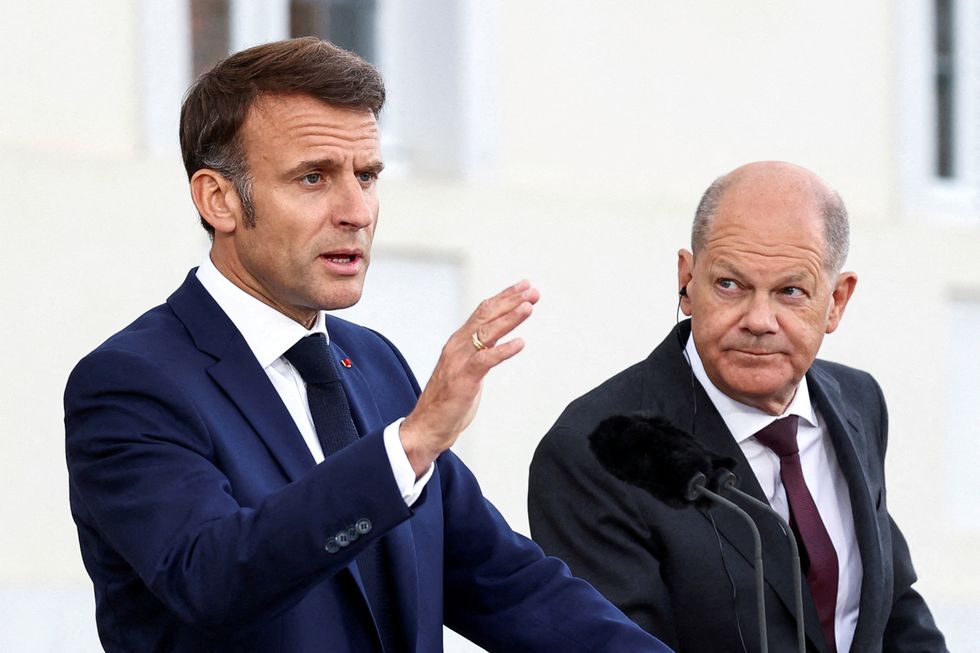
German Chancellor Olaf Scholz looks on as French President Emmanuel Macron speaks to reporters on the day of a joint Franco-German cabinet meeting
REUTERS
Starmer was hoping to sign the UK up to a migrant returns deal with the EU amid pressure to solve the Channel crossing crisis after 29,437 asylum seekers made the perilous 21-mile journey in 2023.
However, if Marine Le Pen receives a bounce in France’s snap legislative polls, the task facing Starmer looks unconquerable.
Despite brokering an Anglo-French cooperation deal with Rishi Sunak, Macron already dismissed a cross-Channel pact and instead argued that the EU needed to come together to tackle the problem.
Le Pen appears unlikely to accept a similar proposal but previously suggested she would assist the UK deporting migrants who arrive illegally on British shores.
In contrast, Starmer has spent much of his time rubbishing the Tories Rwanda plan, vowing to scrap Sunak’s flagship migrant legislation in favour of a new Border Security Command.
Italian Prime Minister Giorgia Meloni sure to make Starmer’s task that bit harder.
Meloni, whose Brothers of Italy gained 18 seats in Brussels to romp to victory, will likely not face the voters until 2027 and continues to take a hardline stance on the migrant crisis engulfing the Mediterranean.
She was more than happy to sign up to the EU’s controversial deal to offload migrants to landlocked members but will not want to take back failed asylum seekers from Britain.
The EU’s centralised decision already created rifts within the 27-member bloc, with former friend Donald Tusk turning into a foe as the Polish Prime Minister rejected Brussels’ migrant relocation mechanism.
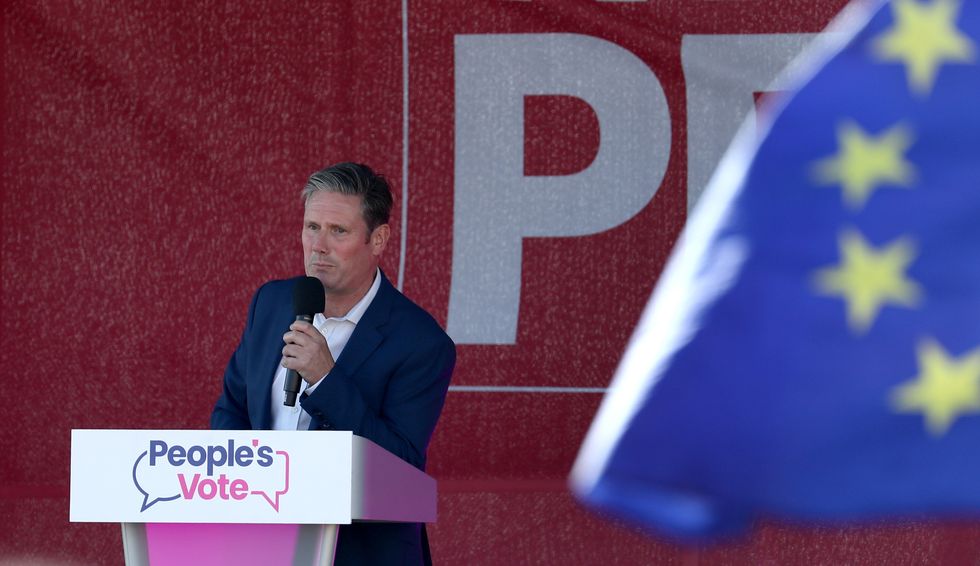
Sir Keir Starmer speaks at the Anti-Brexit 'Trust the People' march and rally
PA
However, it is not just on immigration that the new composition of the EU could pose a problem.
While establishment figures would have been relieved about the centre-right holding firm, the populist right will have greater influence to shift the agenda on a number of issues, including net zero.
European Commission President Ursula von der Leyen, perhaps more naturally an ally of Starmer, looks set to return for a second term as the bloc’s democratically deficient chief.
She was already keen to continue Brussels’ robust position on Northern Ireland as EU negotiators backed erecting a sea border between Great Britain and Ulster.
But the 65-year-old will need to continue in the same vein to assert her authority over errant Eurosceptics.
Von der Leyen recently slapped down Labour’s call to overhaul Boris Johnson trade deal, instead opting to tinker with Northern Ireland through the Windsor Framework.
However, the ex-German Defence Minister, who appeared to fall upwards into the European Commission after a series of procurement scandals caused a bust-up with the Bundeswehr, is willing to strike a foreign policy pact following Russia’s invasion of Ukraine.
Amendments to veterinary checks concerning Northern Ireland could also be on the cards but Brussels will likely continue to demand the UK aligns its plant and animal health rules with the bloc.
Despite Starmer’s reassurances, Brexiteers remain fearful about whether the Labour leader will drag the UK back into the EU’s orbit if he gets the keys to No10.
Starmer, who vowed to keep the UK out of the single market and customs union, was tipped by Labour official Fiona Urquhart to restore freedom of movement.
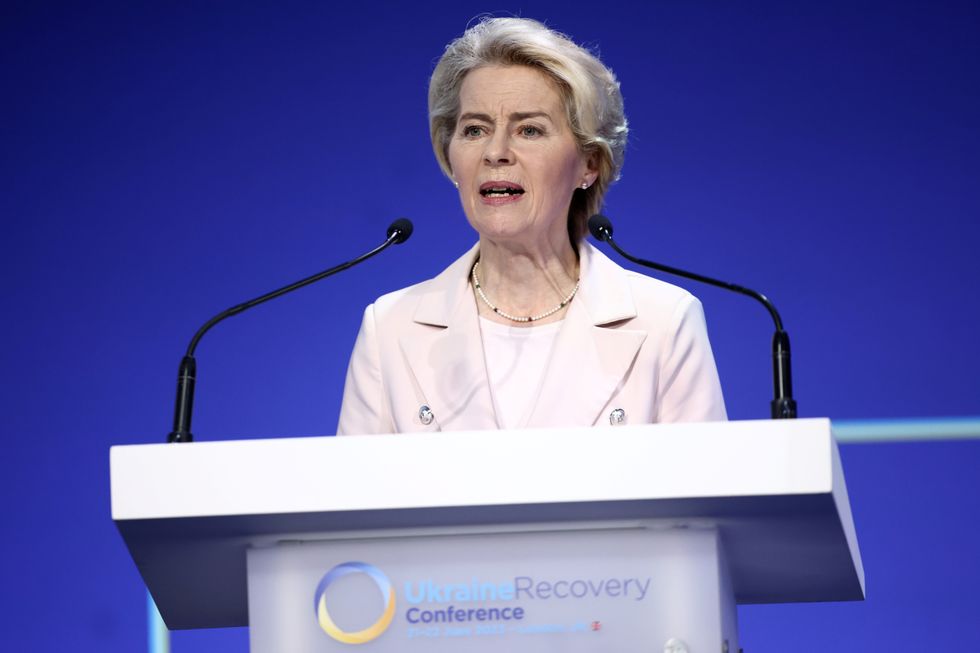
Ursula von der Leyen, President of the European Commission, delivers a speech at the opening session on the first day of the Ukraine Recovery Conference
PA
Such a policy has already been adopted by the Liberal Democrats, with Sir Ed Davey setting out his four-step plan to rejoin the single market.
However, with Brussels facing crises of its own and the power of Starmer’s natural allies being drastically, it becomes increasingly clear the bloc is in an even more unfavourable position than it was when the UK voted to leave the continental club in 2016.
Lurching to the right, facing similar economic strains and grappling with an increasingly-centralised power structure, the Brussels bloc is still being urged by Brexit basher Guy Verhofstadt to create a European army.
And many of the salient issues which drove the Brexit vote have not only failed to dissipate, they’re much worse.
Concern about the UK being roped into Eurozone bailouts have been replaced by the constitutional requirement of joining the single currency.
While seven members still haven’t adopted the Euro, many have unveiled plans to do so and the UK would not be able to guarantee no such steps would ever be taken.
There’s also an unprecedented cross-continent debt in the wake of the coronavirus pandemic of almost £720billion.
Macron suggested a pooled pot could also accommodate “strategic investments” on defence and climate change.
Even if a British Prime Minister vetoed such measures, just like David Cameron did in 2011, there’s every chance EU chiefs will just plough ahead anyway.
And concerns about EU expansion, initially limited to Turkey, have exploded to include fast-tracked applications from Ukraine, Moldova and Georgia, with Bosnia & Herzegovina, Albania, North Macedonia, Montenegro and Serbia all also obtaining candidate status.
You may like


